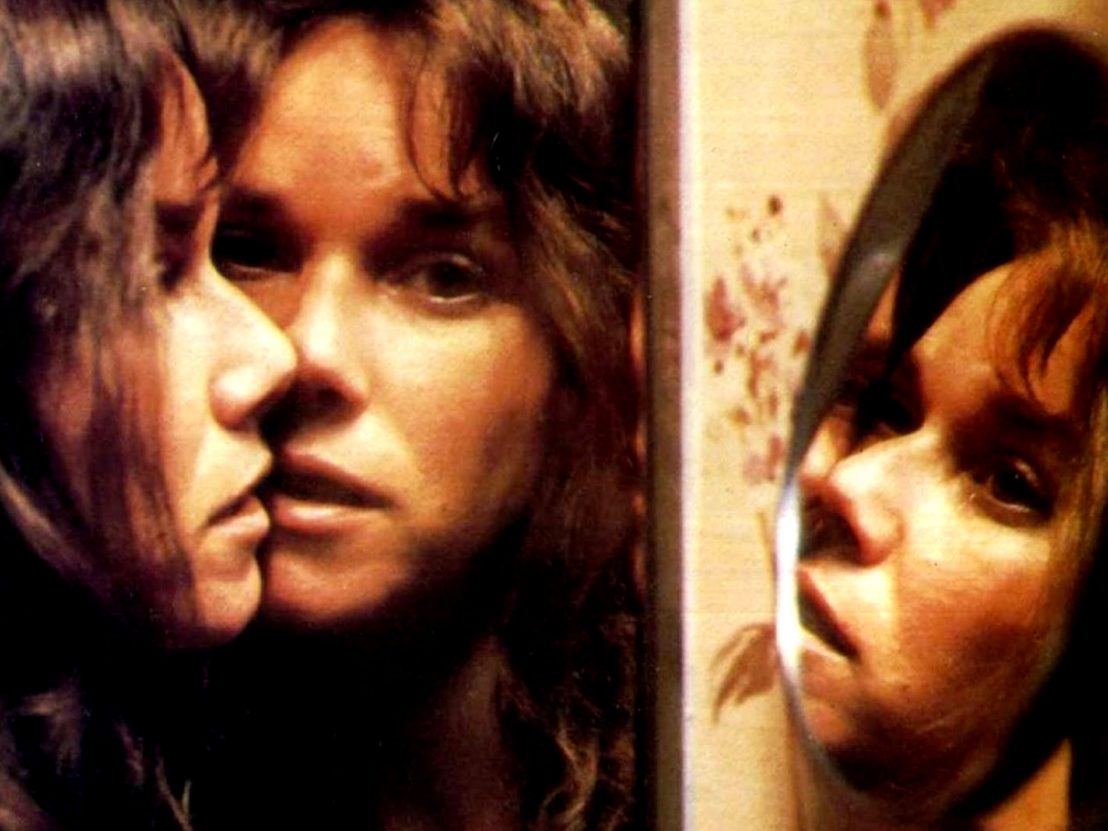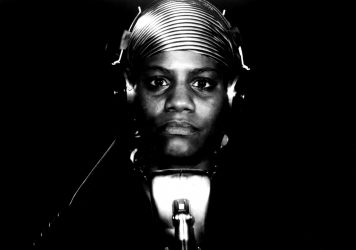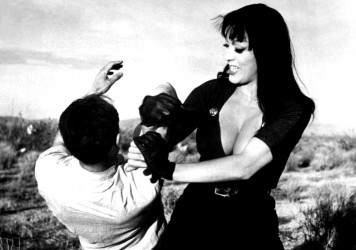
At Bristol’s Cinema Rediscovered, female-driven stories came to the fore in thrilling fashion.
Traditionally speaking, repertory cinema has posed serious challenges to intersectional feminist film programmers. The obvious issues stem from an accepted canon of white male filmmakers, making it hard to attract audiences to a lesser-known name. Further difficulties arise from having to contextualise film choices to a modern audience, particularly when they seem to chafe against contemporary perspectives on women’s roles. In addition, the role of a feminist film programmer involves finding, restoring and advocating for obscure and ignored films which put women – especially women of colour – front and centre.
Cinema Rediscovered, a repertory mini-fest based at Bristol’s Watershed Cinema, is a case study in how feminist film programming can thrive in the context of a retrospectively-focused festival. Featuring programming choices from a clutch of different organisations, including Southwest Silents and various BFI Film Hubs, there was no lack of silent films or Hollywood classics on the docket at this year’s event.
But the weekend’s curation also featured strong input from Madeleine Probst, Programme Producer at Watershed, and Tara Judah, team member at the cinema as well as the Director at 20th Century Flicks. Their selections included a beautiful 4K restoration of Julie Dash’s Daughters of the Dust, and a follow-up of sorts in the form of Lizzie Borden’s seminal pseudo-doc sci-fi Born in Flames.
For the viewer, that double-bill was as thematically and visually disparate as one could imagine. Daughters of the Dust, a dense, poetic examination of the inter-generational tensions of turn-of-the-century Gullah women. It was unavailable for years after its 1991 release. Set during a period where slavery was within the realm of lived memory, the film’s focus on the descendants of slaves made for a striking choice in the context of this Bristol-based festival. Bristol itself was a notorious hub for the transatlantic slave trade, with many of its long-standing buildings funded by and named after those who trafficked human flesh. Not only does this lend an added potency to the film – which touches on the mass slave suicide at Igbo Landing – but the choice offers its own little kickback at a city that still leans on its chequered past.
The programmers also invited a group of talented female film professionals and thinkers along to discuss the films, hosting panels and Q+A sessions after both screenings. These were led by programmer Tara Judah, as well as critic and activist Sophie Mayer, curator Karen Alexander, and programmer Muffin Hix. Born in Flames is an in-your-face takedown of bougie white leftism and feminism, but it’s also intelligently nuanced. Director Borden takes care to show how the feminist consciousness of privileged white women is only shaken after a black woman is murdered in police custody.
Daughters of the Dust was co-presented by Bristol-based black cultural collective Come the Revolution, represented onstage by Liz Chege. But they weren’t the only independent film club to be found in Cinema Rediscovered’s line-up. An evening screening was presented by film club The Final Girls, who focus on interrogating women’s roles in horror. They screened The Entity, a harrowing supernatural thriller from 1982 based on a mysterious real-life case. A single mother claimed a poltergeist of some kind had been sexually assaulting her in her home, with multiple corroborations from people she knew.
It’s far from an easy watch. It plays loose and fast with metaphorical ideas about rape culture, male blame, and the way that men feel compelled to rationalise about rape while casting judgement on victims. The twitchy, dagger-sharp electronic score makes proceedings even more terrifying. The Final Girls made a point of stating how The Entity was deemed misogynistic upon its release, and asked the audience to reconsider this as we watched.
The Final Girls are following on from other independent feminist film clubs, like Club des Femmes and I am Dora. Many have had significant part to play in the increasing interest around forgotten female-led films. Not beholden to the same bureaucracies as brick-and-mortar establishments, they’ve led the way in furthering the cause for films like Girlfriends, reintroduced to a UK audience by I am Dora. Meanwhile, Bechdel Test Fest’s wide variety of screenings have included several films of the ’90s and early 2000s. From Cheryl Dunne’s 1996 film The Watermelon Woman to Gina Prince-Blythwood’s Love & Basketball from 2000, BTF continues to chose films that highlight the romantic experiences of black women of various orientations.
To forge a progressive future for women in cinema, one must see how they have been portrayed – and overlooked – in the past. With its squad of incisive women curators, Cinema Rediscovered offers a real attempt at this. At the post-screening Q&A for Born in Flames, panellist Sophie Mayer remarked of the film: “It kind of gives you an activist infection.” This statement can be applied more widely to the films selected at Cinema Rediscovered. Thinking about the chain of command in budgeting a small festival such as this, it’s encouraging that so many women are now positioned as gatekeepers at local film hubs and beyond.
Seeing these three empowering films grouped together had a certain cumulative effect. As a viewing experience it was as artistically satisfying as it was politically invigorating. When bigger cinemas and film festivals begin to borrow some of the spirit of lo-fi, daring film clubs – hosting strands of radical feminist cinema and leading with films by and about women – it will be a welcome sight indeed.
For more about Cinema Rediscovered visit watershed.co.uk
Published 2 Aug 2017

The American director discusses the issues at the heart of her newly remastered 1983 film.

At the Il Cinema Ritrovato festival in Bologna, digital restoration brings vintage film to new audiences.

How many ’60s exploitation movies have you seen where women get to smoke, drink, drive and fight?